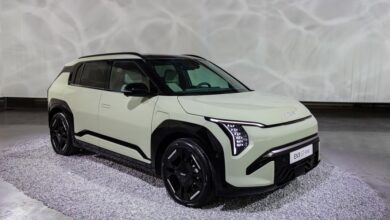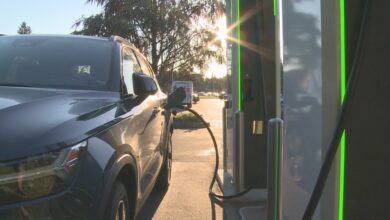Beyond the Road: Exploring the Impact of a Potential Rivian-Apple Collaboration

An electric vehicle manufacturer and a tech company? Sounds like a match made in heaven.
On May 6, reports hinted that Apple (AAPL 2.12%) was exploring a potential partnership with a U.S.-based electric vehicle (EV) company. With operations solely based in the U.S., Rivian (RIVN 10.11%) naturally rose to the top of the list as a potential candidate.
The details of the collaboration remain fuzzy and nothing more than rumors at this point, but if it ends up coming to fruition, it could result in significant benefits for each company. Here’s why Apple needs Rivian, Rivian needs Apple, and what a future partnership might look like.
Rivian EVs. Image source: Rivian.
The opportunity at hand
For years, Apple has been flirting with the idea of building its own electric vehicle (EV). However, after investing $10 billion over the last decade and facing multiple failed attempts, it decided to scrap its plans in early 2024.
Yet with cars evolving into sophisticated computers on wheels, Apple sees an opportunity to diversify its ecosystem and tap into new revenue streams. By partnering with an upstart with a recognizable brand like Rivian, it could leverage expertise in EV technology and accelerate its entry into the automotive space.
For Rivian, a partnership with Apple couldn’t come at a better time. The company finds itself in a precarious financial situation, bleeding cash as it strives to establish itself in the highly competitive EV market.
While it’s not unusual for EV start-ups to face profitability challenges in their early stages, Rivian’s path to profitability appears daunting. Expenses continue to escalate, and its cash position has dwindled by 60% over the past three years. As of the first quarter, the company was losing over $38,000 per car.
With Apple, Rivian could get a boost in a variety of ways. Brand recognition would be an obvious one (Apple is one of the most widely recognized companies in the world), along with expertise in developing some of the most sophisticated and popular devices on the market. Putting that technology to work in a vehicle could open up unprecedented new opportunities.
Potential partnership dynamics
There are obvious benefits if these two companies join forces. But what would it actually look like? A collaboration between Rivian and Apple could take various forms.
The most apparent possibility is a joint research and development effort in advancing autonomous driving technology. Rivian has made notable progress in this area with its Driver+ software, but it still requires a driver’s attention.
This is where Apple could come in. With its deep pockets and technological prowess, the company could lead the way to groundbreaking innovations in self-driving and accelerate progress toward the coveted Level 4 or Level 5 autonomy, at which point drivers are no longer needed
The compatibility of the two companies is clear simply from the perspective that Rivian has the hardware: the infrastructure and supply chain already in place to mass-produce vehicles. Lacking the hardware, Apple would be the developer of the software.
This sort of arrangement has proved successful across several products. For example, Samsung‘s smartphones are integrated with the Android operating system of Alphabet.
For fun, let’s speculate about the results if this partnership comes to fruition. An EV equipped with cutting-edge technology developed jointly by Rivian and Apple would have advanced autonomous driving capabilities, powered by Rivian’s proprietary software stack that gets a boost from Apple’s expertise in machine learning algorithms.
What’s more, drivers would enjoy a state-of-the-art infotainment system integrated into Apple’s ecosystem, offering unparalleled connectivity and convenience.
Things to keep in mind
Rumors of a partnership between Rivian and Apple are intriguing, and Rivian CEO R.J. Scaringe didn’t shy away from discussing its potential in the latest earnings call. But it’s essential to remember that these are still just rumors. Such speculation alone doesn’t necessarily warrant an investment in either company.
Investors should continue to evaluate Rivian and Apple as separate entities, considering their individual strengths, weaknesses, and market dynamics. However, keeping a close eye on developments related to this potential partnership is crucial, particularly for Rivian. A collaboration with Apple could represent the outlet Rivian needs to navigate its financial challenges and secure its position in the rapidly evolving EV market.
Suzanne Frey, an executive at Alphabet, is a member of The Motley Fool’s board of directors. RJ Fulton has no position in any of the stocks mentioned. The Motley Fool has positions in and recommends Alphabet and Apple. The Motley Fool has a disclosure policy.



